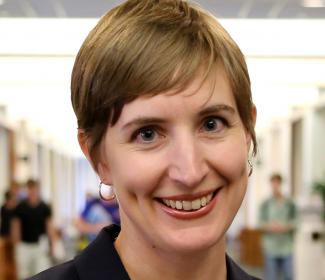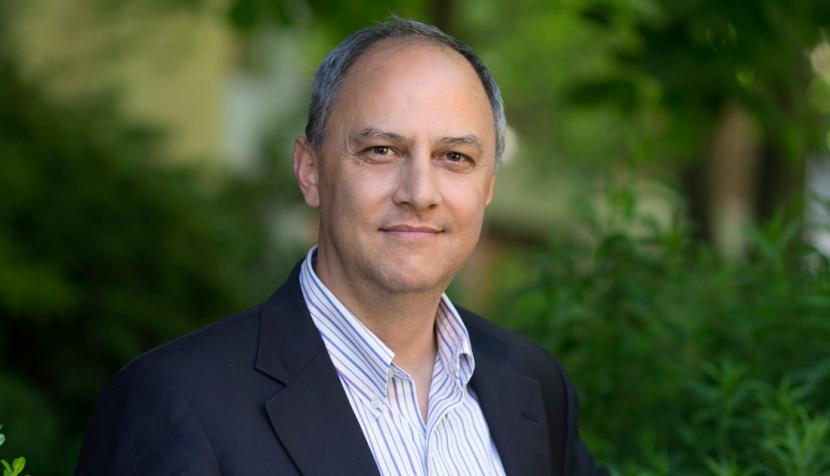The Court of Petty Appeals is the highest appellate jurisdiction court at UVa Law. The Court has the power to review any and all decisions, conflicts, and disputes that arise involving, either directly, indirectly, or tangentially, the Law School or its students. The Court is comprised of four associate justices and one Chief Justice. Opinions shall be released periodically and only in the official court reporter: the Virginia Law Weekly. Please email a brief summary of any and all conflicts to jmg3db@virginia.edu.
PILA v. JanderMeulen
8 U.Va 230 (2017)
HADEN, J., writing for a unanimous Court.
Today we consider an issue of first impression in this Court: whether the Third Amendment to the Constitution shall be partially or entirely incorporated into our Petty Jurisdiction. Based on the reasons that follow, we affirm in part and reverse in part the judgment of the lower court.
The facts of the case are as follows. Appellee PILA is the Public Interest Law Association at UVa Law. They are primarily charged with fostering the public interest community at UVa Law. One primary function that PILA serves is raising money for and distributing summer grants for students who are working at public-service legal internships. One such fundraiser, the topic of this lawsuit, is the PILA Graduation Housing Program (GHP).
The structure of the GHP is as follows: PILA contracts with students who are not going to be using their apartments during Graduation Weekend. PILA offers to pay a certain amount of money to those students for the use of those apartments. PILA also contracts with graduating students and their families who did not book a hotel room in time. See Red Roof Inn’s amicus brief supporting appellant (“If you don’t log on exactly one year before, you’re basically fucked.”). PILA essentially rents the rooms in the apartment to the graduating students’ families for a price; part of that price goes to the apartment owners, and part of that price goes to PILA for its fundraising efforts.
This year’s program looks to be extremely successful. Many students on both sides have contracted with PILA, in part to support appellee’s fundraising efforts. One such student who offered his apartment into the program is the appellant, Vansen JanderMeulen. Appellant and appellee entered into the standard contract to rent appellant’s room to a graduating 3L’s family.1 However, things turned sour quickly.
It appears from the record below that the appellant failed to notify his roommate of the existence and execution of the PILA contract. Based on his roommate’s unwillingness to open up their apartment during graduation week, appellant filed this case in the lower court of the soon-to-be Vice Dean, Professor Leslie Kendrick. Appellant seeks to invalidate the contract through this lawsuit; however, he smartly realizes that there is nothing in contract law that will help him win.
Instead, appellant turns to an admittedly confusing, divisive, and convoluted document for aid: the U.S. Constitution. Appellant argues that the Third Amendment, which bars the quartering of soldiers in any house in a time of peace, makes this contract void under the U.S. Constitution, or, in the alternative, void as contrary to public policy. PILA has countersued for specific performance of the contract, or damages.
Judge Kendrick held for PILA, noting that our decision in Davies v. Journals for Fair Funding made clear that it is uniquely the province of the Court of Petty Appeals, and not the lower courts, to decide which parts of U.S. law shall be incorporated into our Petty Jurisdiction. 438 U.Va. 128 (2016) (“Yeah, this seems like pretty cruel and unusual punishment.”). She allowed PILA to choose whether it received specific performance or damages. Appellant brings this timely appeal.
Under the Goluboff Suggestion, we note that we have jurisdiction, as the parties are a law student and a student organization at the Law School. The dispute also comes from a contract signed at the Law School regarding a Law School event.
Appellant admitted in the lower court (as he does here) that the Constitution and Bill of Rights are subservient to our Petty Constitution. He asserts correctly that we have, in the past, incorporated several, but not all, Amendments to the U.S. Constitution into our jurisdiction. He admits that the Third Amendment has not yet been incorporated, but asks we incorporate it today.
PILA, for its part, first contends that, even were we to decide that the Third Amendment is incorporated, it has no bearing on this case, as there are no soldiers involved, and the contract was formed voluntarily without duress. It suggests that we adopt this argument and avoid the question of incorporation under the Canon of Avoidance.
We are not so convinced that PILA’s argument is correct. While it is true that no soldiers are involved, performance of the contract would allow someone to live in someone else’s home, which strikes close to the ban that the Third Amendment would impose. We cannot say with enough confidence that the Third Amendment would not be implicated in this case if we incorporate that Amendment. “Where this Court is unsure, we’ll probably take a guess, unless we can try to divert the question somewhere else, like a cold call.” Nemtzow v. Nemtzow, 73 U.Va 1280 (2017) (“No, seriously, which one is which?”).
However, we decline at this time to incorporate the Third Amendment. Amicus briefs submitted by various dating apps2 have convinced us that there is a fair amount of spontaneous co-habitation around UVa Law.3 Implementing part of all of the Third Amendment to force people out of a home that they have selected for a night will have far reaching effects on students here, which we are unwilling to impose on the student body.
Our holding today in no way disturbs our property remedies, such as eviction actions, trespass, or zoning laws. We simply cannot allow the invalidation of this contract based on the incorporation of an Amendment which is unimportant, unneeded, and disruptive to our jurisprudence. While we sympathize with the position of JanderMeulen, we cannot let him escape his promises because his roommate changed his mind. We express no opinion on whether he can sue to have his roommate indemnify him or not for any damages until such case is before us.
Appellant also appeals the entry of judgment for PILA; here, his appeal meets with more success. Judge Kendrick allowed PILA to select between specific performance and monetary damages, but neither of these remedies is appropriate. First, specific performance for this contract is not necessary because expectation damages are more than sufficient as a remedy. Specific performance is reserved for those rare times where the object of the contract is so rare and valuable that damages are not sufficient. See Student Body v. Glendon, 379 U.Va 129 (2017) (“WE WERE PROMISED DONUTS!”). Here, the damage done to PILA can be easily measured by the value that they expected to get from this contract.
However, at this time, damages are not appropriate because the contract has not yet been breached. Under the contract, appellant is not obligated to do anything until May, when he is supposed to give his apartment key to PILA. Until that time, appellant is not in breach, and damages cannot be awarded. Once the contract has been breached, PILA may institute a suit in the lower courts for damages pursuant to the breach.
We therefore affirm the lower court’s judgment insofar as it refused to incorporate the Third Amendment, and we reverse the lower court’s award of damages or specific performance. We instruct the lower court to dismiss both the suit and the countersuit.
As a final matter, this opinion shall be my last as a Justice on this Court. I wish the remaining and future members luck in navigating the treacherous but crucially important waters of this Petty jurisdiction.
It is so ordered.
---
ach7pa@virginia.edu
1 The graduating 3L, D. Markoff, is not a party to this lawsuit because his “funds are real low rn, brah,” but he has filed an amicus brief supporting the appellee.
2 Tinder, Bumble, Scruff, etc.
3 See Bilt on a Thursday or Saturday.








